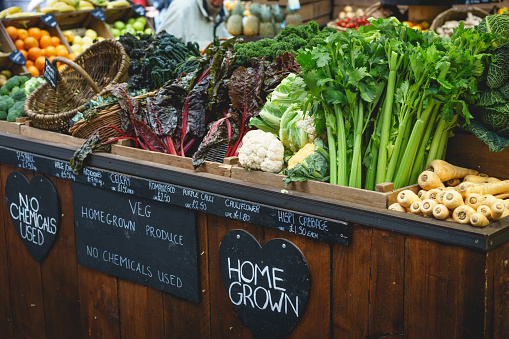
WHY UK RESTAURANTS ARE INCREASINGLY BUYING BRITISH… and Local
WHY UK RESTAURANTS ARE INCREASINGLY BUYING BRITISH
Does provenance matter? Are consumers bothered about the origin of their products and produce or does it really just come down to budget and convenience?
As a society, we are increasingly demanding high quality, unique and artisan produce, products and services. Whether it’s the food we eat, the way it’s served or the environment it’s consumed in, we are becoming increasingly concerned about the origin of the things we consume.
That’s why it’s unsurprising that most consumers would be willing to pay more for food they believe to have been produced in the UK. Whether it’s because they associate origin with quality or because it feels better than consuming mass made products, consumers’ growing concern of provenance shouldn’t be ignored by chefs and catering professionals.
What is surprising, is that consumers are also increasingly making decisions on where to eat, based on the whole dining experience; from hand-crafted tableware to cutlery that supports the local economy – anything that forms part of the dining experience could determine where a consumer chooses to eat.
The trend
Many chefs may already be aware of this trend. We recently conducted a small survey in which we found that 60% of our respondents felt that purchasing British-made products and produce for their establishment was very important, while 40% felt it was important.
We also found that 100% of respondents actively seek locally/nationally commodities for their establishment and that 100% of respondents also felt it was important for their tableware to be sourced from within the UK, as well as their ingredients.
It’s evident that provenance is important to both consumers and catering professionals. But why?
Why provenance is so important

Customer attraction
It may be that restaurants and subsequently, chefs, have such an interest in provenance because their customers do. Surveys reveal that some respondents felt that their customers place a real emphasis on buying local and therefore to attract this audience, their supplies had to be sourced locally.
Respondents also felt that buying locally gave them a story to tell. From a marketing perspective, restaurants can draw on their use of local suppliers to sell their restaurant and attract customers.
Sustainability
Some chefs are also concerned about sustainability and their carbon footprint, which mimics their customers’ concern about such issues. Reportsshow as many asd a thrid of customers favouring sustainable brands, it’s no surprise restaurants are trying to go down this route.
And provenance can certainly help with that. Buying locally helps to reduce food and product miles – the closer you buy, the less distance it will have to travel, and subsequently, emissions from transport are greatly reduced.
Not only that, but smaller, local producers have a reputation for growing or producing high-quality products and produce. The better the quality, the longer it will last – minimising waste and the need for replacements.
Better relationships
Other respondents in our survey felt that using local suppliers helped them to build better relationships. That’s possibly because it enables you to have a more direct relationship with those who will be producing or creating your products or produce, allowing you to have face-to-face contact and build connections rather than dealing with large scale companies where you’ll have less influence on the product and little chance of getting in front of your point of contact.
As such, this can help build trust and an environment in which the supplier can tailor their commodity to your business and offer recommendations based on your needs and requirements.
Two-way support
It was apparent from survey feedback that many chefs support local businesses in the hope and knowledge that they’ll receive support back. Whether that’s through visits or shout outs via the supplier’s own channels, the relationship that comes with buying from local suppliers encourages mutual support for each other’s business



